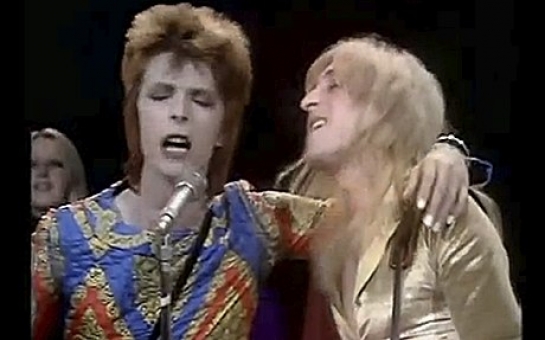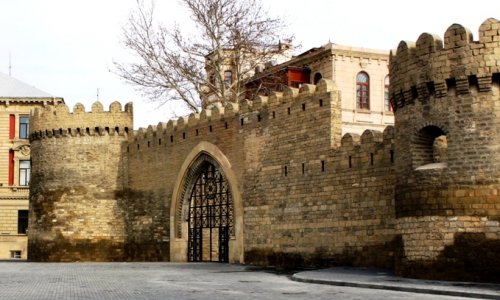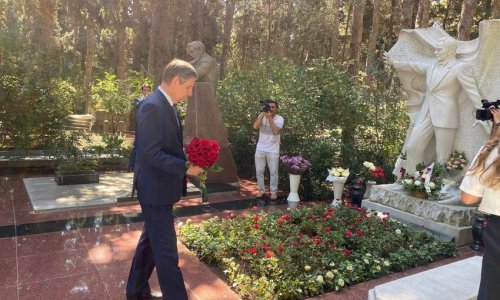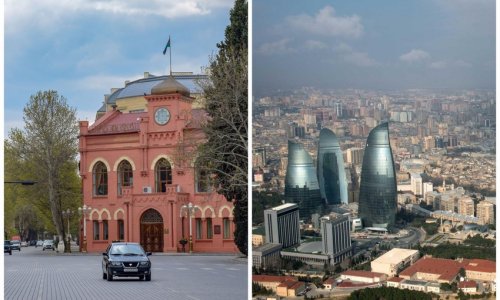Follow us !
Top of the Pops at 50: should the BBC bring it back?
Culture
21:20 | 28.12.2013

Top of the Pops at 50: should the BBC bring it back?
'Dad! Dad! Top of the Pops! It's about to start now!" The child is my daughter Dora, who, in the three years that BBC4 has been repeating 35-year-old episodes of Top of the Pops, knows it's the one immovable fixture in my viewing week.As it happens, these reruns are some of the earliest Top of the Pops I remember watching. Pictures of Abba, Showaddywaddy and ELO would flash before us. Then, as now, the charts were a pop share index – a Rock Exchange, if you like – charting the differing fortunes of bands in the affections of the nation. It was all the news we needed. But, of course, the future is never quite as you expected it to be. I always thought that, just as my parents did with me, I'd be watching Top of the Pops with my kids in the new century. I just didn't think that we'd be watching exactly the same episodes.On New Year's Day, Top of the Pops celebrates its 50th birthday. The BBC clearly recognises the power of the brand, and yet – notwithstanding the traditional Christmas and new year editions – Top of the Pops hasn't been able to find a way back into the schedules since former BBC controller Lorraine Heggessey laid it to rest on 30 July 2006. What this means in our house is that Dora has a pretty good grip on Darts' late-1970s phase of chart dominance, but has no idea what position any singles by her favourite band Coldplay reached in the charts. Is that a worry?In the view of the BBC's head of music entertainment, Mark Cooper, TOTP's demise was on the cards "ever since the mid-90s, when [then head of Radio 1] Matthew Bannister decided to make Radio 1 a station for young people. That had a knock-on effect in the charts and, ultimately, on Top of the Pops. The show lost the cross-generational appeal that it had when more light-entertainment-minded producers such as Michael Hurll were in charge of it. Back in those days, you could veer from Echo and the Bunnymen to, say, Keith Harris and Orville in a single episode."Cooper's appraisal echoes that of 70s TOTP mainstay Tony Blackburn, who feels that all this talk of bringing back the show is misplaced nostalgia. There is, he says, "no necessity for it to come back, even for Christmas. I remember after I appeared on the 2006 farewell Top of the Pops, people would come up to me and say: 'How dreadful of the BBC to take it off the air.' And I would just reply: 'Well, if you'd been watching it, they wouldn't have axed it.' It's pointless to pretend it can have the impact that it once did – in an age when there were only three TV channels and it could not only change the lives of kids watching it at home, but the lives of people performing on it for the first time."His point is well made. Russell Mael from Sparks recalls waking up to a transformed world the day after his group crash-landed in the public consciousness with This Town Ain't Big Enough for Both of Us: "Nothing could have prepared me for the suddenness of the reaction. That was mindblowing. There's nothing like that in the US, where you appear on TV one evening, then the following morning everyone's talking about it." Interviewed by Guardian writer Ian Gittins for his book Top of the Pops: Mishaps, Miming and Music, Saint Etienne's Bob Stanley remembered watching Culture Club's TOTP debut with Do You Really Want to Hurt Me: "My Dad came in and said: 'What the bloody hell's this? Is that a bloke?' I said: 'Yeah, I think he looks great,' and my Dad said: 'Oh, do you really? Would you like it if I came home dressed like that?' And I had to admit that, no, I really wouldn't." Nine years before, having fame instantly conferred upon him with Soft Cell's Tainted Love, Marc Almond recalls the battle lines drawn by the most iconic of all Top of the Pops moments: the effeminate draping of David Bowie's left arm around the shoulder of his guitarist Mick Ronson during Starman: "Next day, all hell broke loose in the playground. Bowie was a queer, and if you liked him, you must be queer too."That could never happen again, could it? Charlie Stott, strategy director at brand consultancy giants Wolff Olins, reckons I'd be better off removing my "rose-tinted goggles" if I really think Top of the Pops can once again play such a significant role in the cultural life of the average British family. But, if only to honour the memory of the cat's-bum mouth my mother did when she saw Morrissey's gladioli-twirling performance of This Charming Man in 1983, I can't help believing that, with the right format, there can be a music show capable of delivering generation-defining moments of pop genius. And why shouldn't that show be Top of the Pops? "Because it has lost its context," says Stott, flatly. "The medium is wrong. Its best use is as a heritage brand, because the charts are an irrelevance to most people who would prefer to just listen to their own favoured genres. Top of the Pops used to have a social-network effect, didn't it? You had to watch it in order to have the conversation at school or work the next day."Inadvertently, Stott may have alighted on the reason why a rejuvenated TOTP might stand a fighting chance if restored to its former prime-time glory. The "social-network effect" is exactly the reason why so many people watch shows such as The X-Factor and I'm a Celebrity … Get Me Out of Here. Twitter is the enormous student common room where millions of people go to enjoy these shows, augmenting their enjoyment by reading and posting immediate reactions to the events unfolding before them. If real-time online discourse and interactivity is crucial to the success of these shows, why shouldn't it be used as rocket fuel to propel a new version of Top of the Pops?It's all too easy to forget that, in a primitive way, interactivity was key to the appeal of the old Top of the Pops. You would watch the show and then, if you liked a song, you would in effect "vote" for it by going to a record shop and buying it. If anything, it's a process that makes more sense in 2013. How about a prime-time version of Top of the Pops in which a £1 vote for your favourite track got you a free download in return? Or maybe stretch to £1.50 and funnel the remaining money into a contest – part lottery, part pools – to predict the ensuing chart positions of this week's lineup. Broadcast it on Sunday night and the new chart rundown will double up as the announcement of the winning numbers.Cooper only agrees in as much as "any new version of Top of the Pops would need to be absolutely reformatted to work in a modern era". However, he adds: "This isn't just a British problem. The demand for prime-time music programming has declined in all markets and no other broadcaster I know about has managed to reverse that trend." Stott wonders if the combination of the Jimmy Savile revelations and the indifference of younger music fans have consigned Top of the Pops to indefinite obsolescence. And as Blackburn points out of his 16-year-old daughter: "I don't think she's even aware that it's on at Christmas. If she wants to hear new music, she'll go to YouTube."Perhaps they're all right. Maybe Top of the Pops is a relic from a long-gone era. But then, who would have imagined, 10 years ago, that the BBC's highest rating show would be a turbocharged reimagining of Come Dancing? That the results of a televised baking contest would make the front pages of almost every national newspaper?Meanwhile, in the front room, it's nearly 8pm and there are two things my daughter wants to know: will Boney M get to hold on to the top spot next week? And why isn't there a Top of the Pops for the music happening now? I can only answer one of those questions.(theguardian.com)ANN.Az










